2017 Company of Teachers Offerings
Offerings by the Reformed Institute Company of Teachers
In Celebration of the 500th Anniversary of the Reformation in 2017
Additional Offerings May be Found on the Company of Teachers Page
For a prinatble version, click here.
To Use the Company of Teachers:
Please consider carefully the needs of your audience when selecting one of the Company to contact. Any arrangements made are between individual members of the Company and local churches or member groups. For more information about using the Company of Teachers click here.
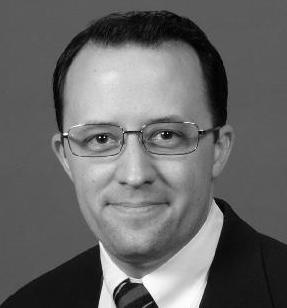 JAMES FERGUSON CUBIE
JAMES FERGUSON CUBIE
Associate Pastor for Christian Formation, Leesburg Presbyterian Church (Leesburg, VA); MDiv, Union Theological Seminary (NYC); Th.M. (Systematic Theology), Princeton Theological Seminary; Member, National Capital Presbytery; and 1001/New Worshiping Communities Initiative.
Contact Information:
[email protected]
571-970-1175 (home)
917-757-8793 (cell)
“What Came After? A Short History of Pietism”
Pietism is the movement that followed the reformation. It attempted to address perceived weaknesses of the Reformation focus on sin, justificaion, grace, and “faith-alone”. Pietism focused on “piety”: the practice of the Christian life; growth in the Christian life; and, the importance of holiness of life to the Christian. This class will introduce key leaders within Lutheran pietism, and John Wesley, who interacted with and developed key ideas and practices from German Pietists.
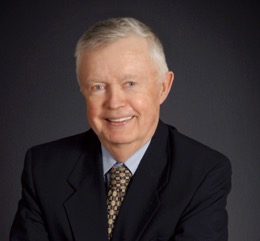 R. BRUCE DOUGLASS
R. BRUCE DOUGLASS
Director of the Reformed Institute; Associate Professor, Department of Government, Georgetown University; M.Div., Yale University; Ph.D. (in political science), Duke University; Elder, Lewinsville Presbyterian Church, McLean, VA.
Contact Information:
[email protected]
202-687-1938 (Georgetown)
703-518-5125 (Reformed Institute)
These are separate lectures and can be cast as stand-alone presentations. But they can also be offered as a series under this heading:
THE REFORMATIONS OF THE 16TH CENTURY AND THEIR ENDURING LEGACY
- What Exactly Was the Protestant Reformation?
- The Catholic Reformation?
- The Protestan Principle and Protestant Identity
- The Re-formation of the Church in Our Time
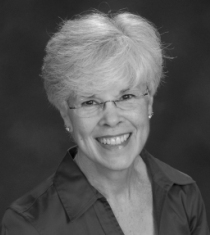 MELISSA KIRKPATRICK
MELISSA KIRKPATRICK
Certified Christian Educator in the Presbyterian Church (U.S.A.); M.A. (in history), The American University; M.T.S., Wesley Theological Seminary; Ph.D. (in history), The American University; Elder, Georgetown Presbyterian Church; Director of Education Ministries, Manassas Presbyterian Church; Adjunct Faculty, Wesley Theological Seminary; Member, Commission on Preparation for Ministry.
Contact Information:
703-909-0470 (cell)
[email protected]
Suitable for single lectures on Sunday mornings (multiple sessions are not possible for Sunday mornings, through Sunday afternoons/evenings and some weekday evenings possible).
Reformations: From early critiques to final divisions — the basics
The 16th century conflicts over the state of the Roman Catholic Church’s practices, personalities, and theological positions began well before the well-known 95 Theses of Martin Luther and continued through that century and beyond. This lecture will be a quick romp through the high points and basic arguments Reformation leaders put forward.
Worship Reformed:
The Reformation leaders inaugurated some of the most dramatic changes in the structure of worship since the days of Gregory the Great in the 6th century. How they translated and adapted the old Latin liturgy for the new era is a complex story — some changes were major, some were not. All occurred in the larger context of political events and cultural change. Watch how the Reformed tradition developed its distinctively biblical and personal approach to worship.
From Latin text to sola scriptura: Attitudes toward Scripture in America
Leaders of the Protestant Reformation critiqued the traditional use of Scripture as distorted and corrupt. They advocated clear translation, honest teaching and preaching, and better understanding of the text. As inheritors of Reformation tradition moved to settle in America, they brought a number of different attitudes derived from their histories — Reformed Protestants, Anglicans, Anabaptists — all had a little different take. And everyone appealed to Scripture to support their cause. Explore a little of this complex story of the influence of Reformation attitudes toward the Bible as they came to America.
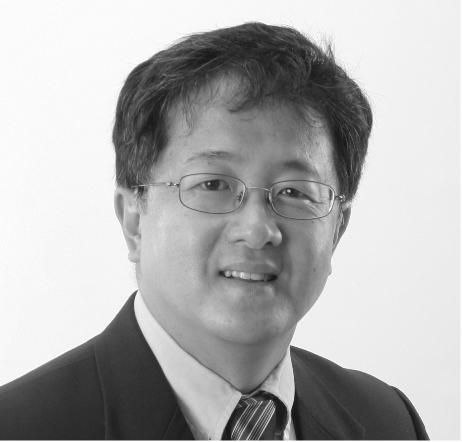
JOHN Y. LEE
Pastor, Rock Presbyterian Church; Academic Dean, The John Leland Center for Theological Studies; M.Div., Gordon-Conwell Theological Seminary; S.T.M., Yale Divinity School; Ph.D.(in philosophy of religion and theology), Claremont Graduate University; ordained in PCUSA.
Contact Information:
[email protected]
202-213-2015 (cell)
The Spirit of the Reformation and the Formation of Modern Korea
The formation of modern Korea took place in the face of almost insurmountable odds. From 1910 to 1945, the Korean peninsula was occupied by Japan that sought to Japanized Korean society and culture, enforcing name changes, the learning of the Japanese language, and abolishing religious beliefs and practices contrary to the Imperial cult of submission to the Japanese emperor. In the face of such political and martial pressure, many Korean Christians, especially Korean Presbyterians, rose up and bravely resisted what they perceived as an evil and idolatrous movement. Korean Protestants in fact were the chief political leaders of the Korean Independence Movement under the Japanese occupation. In this talk, I would like to present the case that the struggle for Korean Independence was as much of a theological movement as it was a political movement. On closer examination, the political movement, from the perspective of Korean Protestants, was grounded in the theological conviction of God’s providence and the theological prohibition against idolatry. This early association of Protestant Christianity and the Korean Independence Movement, in hindsight, proved to be consequential in terms of shaping modern national identity as well as shaping the identity of the Korean Protestant church as a missionary church, called to reach nations, including modern Japan, with the Gospel of Jesus Christ.
The Spirit of the Reformation and the Flowering of Christian Philosophy
“Our wisdom, in so far as it ought to be deemed true and solid wisdom, consists almost entirely of two parts: the knowledge of God and of ourselves.” Thus begins Calvin’s Institutes. The Reformed emphasis on the life of the mind as a way of worshipping God protected itself from various types of anti-intellectualism that consumed other Protestant movements, including big parts of American Evangelicalism. In this talk, I would like to trace this Reformed distinctive from the thought of John Calvin, to Abraham Kuyper, to present-day Christian philosophers, Alvin Plantinga and Nicholas Wolterstorff (leaders of a philosophical perspective dubbed “Reformed Epistemology”). The strength of Christian philosophy is one of the more surprising facts about contemporary philosophical developments. These contemporary philosophers have inspired not only fellow philosophers but those working in other fields as well, including theology!
ERIC O. SPRINGSTED
Interim Senior Pastor, Madison Avenue Presbyterian Church, New York City, NY; Librarian, The Center of Theological Inquiry, Princeton, NJ; Former Interim Senior Pastor, Rye Presbyterian Church, Rye, NY; Former Interim Executive Presbyter, Monmouth Presbytery (NJ);Former Senior Interim Pastor, Georgetown Presbyterian Church, Washington, DC; former Professor of Philosophy and Religion, Illinois College; former Acting Chaplain and Lecturer in Philosophy, Princeton Theological Seminary; M.Div, Princeton Theological Seminary; Ph.D. (in philosophy and theology), Princeton Theological Seminary
Contact Information:
[email protected]
609-777-5522
The following course can be separated into individual lectures. Not available on Sunday mornings.
Is the Reformation Over?
The Past, Present, and Future of Reformed and Roman Catholic Relations
To be Reformed is by its very nature to stand in relation to the historic Catholic Church. Over the years, the relations have between the Reformed churches and the Roman Catholic church have changed, moving from violence to hostility and misunderstanding to currently much warmer and friendly ones. Thus, is the Reformation over? Or, does faith demand that we push towards a new unity? What, if anything, could possibly be the basis of such unity? What do we have to learn from each other?
This course will look at the most central issues that have historically divided the churches of the Reformation from the Roman Catholic Church, issues that are still important today: the nature of justification, the nature and authority of the Church, the sacraments. We will look at how these issues arose during the Reformation and their subsequent history up to the present ecumenical discussions.
Throughout the course we will be basing our discussion on several primary documents, ranging from those of Luther and Calvin, and the confessions of the Reformation era, to important ecumenical documents of the last century. A bibliography will be provided that will contain several helpful recommended readings.
Session I: The Issues of the Reformation
Luther and Calvin on the Doctrines of Justification, the Church, and the Nature of the Sacraments.
Session II: The Aftermath of the Reformation:
The Catholic Counter-Reformation, the Confessions of the Post-Reformation Era, and subsequent positions of Protestants and Roman Catholics.
Session III: New Ecumenical Understandings:
The Ecumenical Movement, and its background. The effect of Vatican II on Protestant and Catholic Relations. New understandings of the Bible and of tradition.
Session IV: A Discussion with a Roman Catholic theologian.
An opportunity to listen to where the Roman Church currently stands on these issues, and to engage a Roman Catholic theologian on them.
Session V: The Unity of the Church
What do we hold in common with the Roman Catholic Church on essentials of the faith? How has the Reformed tradition today changed in its understanding of these crucial issues? What would we be working towards? Do we have a common mission to bring light and faith to the world?
This course will help you to understand:
- The theological issues that divided the Reformed and Roman Catholics churches.
- The misunderstandings that contributed to the division
- The current state of the discussion, as each side now sees these issues in a somewhat different light.
- Why church unity is an important issue of faith.
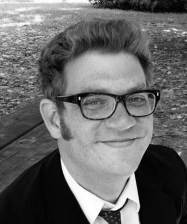 MATTHEW D. TAYLOR
MATTHEW D. TAYLOR
Ph.D. Candidate in Theology and Religious Pluralism at Georgetown University; MA in Theology from Fuller Theological Seminary (Pasadena, CA); Ruling Elder at The Georgetown Presbyterian Church; Facilitator of Young Adult Programming for the Reformed Institute.
Contact Information:
[email protected]
323-401-9474
THE REFORMATION, PROTESTANTS, AND ISLAM
#1 – THE PROTESTANT REFORMATION AND ISLAM
One often overlooked aspect of the Protestant Reformation is the role that Islam played in the backdrop to the chaos that engulfed Europe in the 16th century. Turkish Muslim armies nearly sacked the city of Vienna during the Reformation, and the possibility of being conquered by people of a different religion was at the forefront of the Reformers’ and Catholics’ minds. In the midst of this, several of the leading Protestant Reformers, including Luther, advocated for and produced the first publication and printing of the Qur’an in Latin in Europe. This lecture explores that largely unknown history and considers what effects it had on the Protestant movement.
#2 – DOES ISLAM NEED A REFORMATION?
It is a frequent refrain among pundits and casual observers of Islam that “Islam needs a Reformation,” but what would such a transition or transformation look like? Does this analogy make sense, and, if so, is it something that is already happening today? This lecture considers the actual history and outcome of the Reformation in Europe and beyond and compares these developments to the present state of Islam in the world.
#3 – BUILDING BRIDGES BETWEEN REFORMED CHRISTIANS AND MUSLIMS
For 500 years Reformed Christians and Muslims have existed, often in very different parts of the world and frequently at ideological and theological odds with each other. This lecture discusses some possible routes (theological, experiential, historical, and scriptural) that might lead to bridge-building and peace-building between Christians, particularly those of the Reformed ilk, and our Muslim sisters and brothers in the family of Abraham.
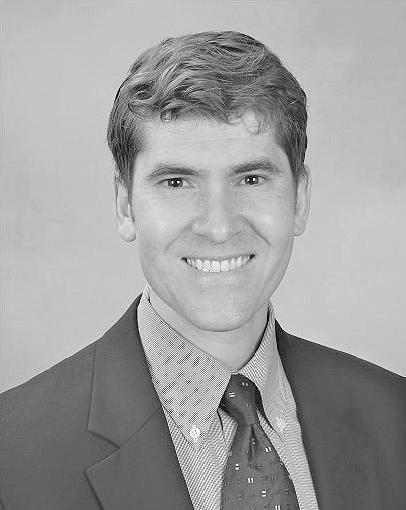 JON DELMAS WOOD
JON DELMAS WOOD
Assistant Professor, Department of Religion, The George Washington University; M.Div., Princeton Theological Seminary; Ph.D. (Church History), Princeton Theological Seminary; member, Lewinsville Presbyterian Church, McLean, VA.
Contact Information:
[email protected]
202-994-6326 (GWU)
This is a two-session bloc:
“Justification and Vocation: Religion at the Crossroads of a Workaday World.”
This session explores the how and why of that most fundamental, biblical notion of reformation–“justification”–but in a way designed to make theology relevant to lifestyle. (Many people have the unfortunate impression–sadly exacerbated by most theologians themselves–that theology is the domain of ornery dogmatists rather than a concern of, as Jimmy Stewart would say, ‘the folks who do most of the real livin’ and dyin’ around here’.) Another plus of spinning it as ‘justification and vocation’ is that it gets at the heart of what is often philosophically paired as “justification and sanctification” without falling into the shopworn grooves of that formulation.
This is a four- (or five-) week module:
“What is ‘Reformation’ and How does it Matter?”
